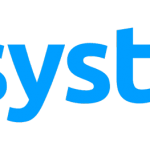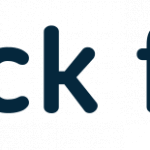-
News & Trends -
Sales -
Marketing Related Topics -
B2B Software Guides Related Topics -
Free Tools & Resources -
- About Us About Us


Sales funnel software are online tools — usually CRMs — that help businesses create and manage a sales funnel and push leads through it toward a purchase. The top sales funnel software typically offer a visual sales funnel, sales funnel metrics, webpage builders, email marketing, and CRM features such as lead scoring and sales automation. To help you identify the right tool for your business, we’ve analyzed and reviewed the best options on the market.
Here are the six best sales funnel software for salespeople and marketers:
Although some options won in a specific category, we found that Freshsales provides the highest overall value for those seeking a sales funnel management platform. Read on to learn how each software did in terms of core features, pricing, and primary use cases, or skip down below to see how we evaluated each option.
Note: All per-user prices are with a one-year commitment unless noted.


Freshsales is an affordable sales-forward CRM with a strong suite of sales funnel features.
Freshsales is a robust CRM that helps salespeople manage sales funnels, capture leads, and automate the movement of leads down the funnel. In the platform, you can easily set up visual funnels, online forms, landing pages, automated email campaigns, and chatbots, not to mention sales automations like automated follow-ups and task assignments. Upgrade to a higher tier for advanced features like AI-based forecasting insights and a dedicated account manager.
Although Freshsales is a powerful sales funnel tool in terms of features, pricing, and automation, its weakness is that it's hyper sales-focused and lacks marketing tools unless you upgrade for them. For a more marketing-forward CRM, check out Zoho CRM.
Zoho CRM is a sales funnel software that connects well with powerful lead nurturing tools.
Zoho CRM is an omnichannel CRM offering key sales funnel features as well as seamless integrations with social media platforms, email, telephony, and Zoho add-ons like SalesIQ — a tool that identifies your web visitors. With the social integration, you can interact with leads and monitor their Facebook and Twitter activity directly from Zoho CRM, where all social activity, including brand mentions, is tracked and available for insightful sales funnel analysis.
While Zoho is a fantastic CRM for omnichannel marketers and sellers, it can be a tough platform to learn and set up. For a CRM that’s a bit easier to implement and that still offers a wide range of integrations, check out HubSpot CRM.


Pipedrive is a CRM with an intuitive sales funnel interface and a range of helpful templates.
Pipedrive is a sales CRM with sales funnel features for building, managing, and monitoring your funnel, such as visual funnel tracking, sales automation tools, and an interactive funnel-metrics dashboard. Pipedrive’s differentiator is its shallow learning curve. With access to a wide range of templates, for everything from sales funnels to cold emails to CRM automations, you can quickly set up the CRM and start using it to its full potential — no training necessary.
Although it’s great for easy sales force automation and funnel management, Pipedrive has no free plan. For a sales funnel platform that you can use for free and still learn pretty quickly, check out HubSpot CRM.


Systeme.io is a sales funnel platform with quick customer service and in-depth feature tutorials.
Systeme.io is a sales funnel software platform that provides for a wide spectrum of marketing needs, including sales funnel management, email marketing, course creation, and even web-page building. Praised for its competence in online reviews, Systeme.io’s support team answers questions via email seven days a week (average response time under two hours). The company also offers in-depth video tutorials covering every feature on their versatile platform.
While great for marketers, solopreneurs, and small business owners, System.io isn’t designed for sales teams. For a sales funnel platform that provides solid customer service as well as a sales CRM with marketing add-ons, check out Freshsales.
HubSpot is a free CRM that supports sales, marketing, and customer service teams.
HubSpot CRM is a free all-in-one CRM with features for creating and monitoring your sales funnel and then nurturing leads through it. Some of these free tools include a web form builder, live chat, email marketing, lead management, and a landing page builder. By upgrading to Sales Hub, you can gain access to a variety of premium features, from sales automation and 1:1 support on the Starter plan, to lead routing and in-depth reporting when you buy Professional.
HubSpot CRM is a great free sales funnel tool, but it lacks customer service, with its only support option being access to community forums. For a platform that offers three free users as well as 24/5 support over phone, email, and chat, check out Freshsales, our overall winner.


ClickFunnels is a sales funnel tool with a diverse set of templates for building various funnels.
ClickFunnels is a sales funnel software offering a funnel builder, a website builder, funnel analytics, and other tools designed to increase your sales on your website. They also offer access to hundreds of customizable funnel templates for various situations, from driving leads to a webinar to launching a new product. These enable you to quickly build effective customer journeys and the content and pages they’re made of (e.g., emails, sales page, order form).
Though ClickFunnels is a powerful sales funnel software for businesses making sales on their website, its CRM isn’t well-suited for a B2B sales team making complex sales. For sales funnel software with a more robust CRM, as well as many useful templates, check out Pipedrive.
The five most critical sales funnel software features to look for are below:
A built-in CRM will track the leads, prospects, and customers that are in your sales funnel, providing you with real-time information about their demographics, behavior, and current funnel stage. It will also give you a historical record of each lead’s activity with your brand, which will help you pick the right sales or marketing activity to push them through the funnel.
When conducting our analysis, we first picked the six criteria that matter most when selecting a sales funnel software, and within those created multiple weighted subcriteria. Then we used our rubric to examine numerous tools, giving each one a total score out of five and illuminating their use cases. Below you can find the criteria and subcriteria that we took into account.
We first inspected each tool’s core features, like deal tracking and sales funnel builders, to ensure that each platform had the right sales funnel capabilities. Next, we evaluated each tool’s cost to make sure it was affordable, followed by its reporting functionality and integration capabilities. Finally, we looked into each platform’s ease of use and customer support.
We looked for sales funnel features like sales funnel building and monitoring, web form builders, A/B testing, and email automation.
This is based on the price of software, the availability of free trials and free plans, and plan flexibility.
We checked whether each tool offers funnel reporting, a custom dashboard, deal forecasting, and contact activity tracking.
This takes into account the availability and quality of each tool’s native integrations with email and telephony tools, payment gateways, and more.
We looked at each tool’s average ease of use and setup ratings across various software review sites, such as G2 and Capterra.
We reviewed feedback from customers on multiple review sites as well as each tool’s level of access to phone, chat, and email support.
From omnichannel CRMs to sales funnel point solutions, various types of tools fit into the overarching category of sales funnel software. Despite any differences, their feature sets almost always include a built-in CRM, a visual sales funnel, form builders, sales and marketing automation, and funnel reporting tools. Before committing to any one of the above sales funnel platforms, consider reaching out to a company representative to see if it fits your specific needs.


Sam is a former SaaS sales rep turned freelance writer. He spent his career selling real estate technology to C-suite executives before switching over to blogging, where he now covers sales, marketing, and small business topics. Sam specializes in lead generation, lead nurturing, and deal closing articles for Selling Signals. When he’s not researching the latest sales trends, he’s either penning short stories, hiking, or reading in NYC’s Washington Square Park.

Selling Signals delivers actionable advice for sales and marketing professionals. Learn strategies that help you hit targets, strengthen customer relationships, and win more business. Get expert advice on lead generation, sales processes, CRM software, sales management, and account management directly to your inbox.
Property of TechnologyAdvice. © 2026 TechnologyAdvice. All Rights Reserved
Advertiser Disclosure: Some of the products that appear on this site are from companies from which TechnologyAdvice receives compensation. This compensation may impact how and where products appear on this site including, for example, the order in which they appear. TechnologyAdvice does not include all companies or all types of products available in the marketplace.